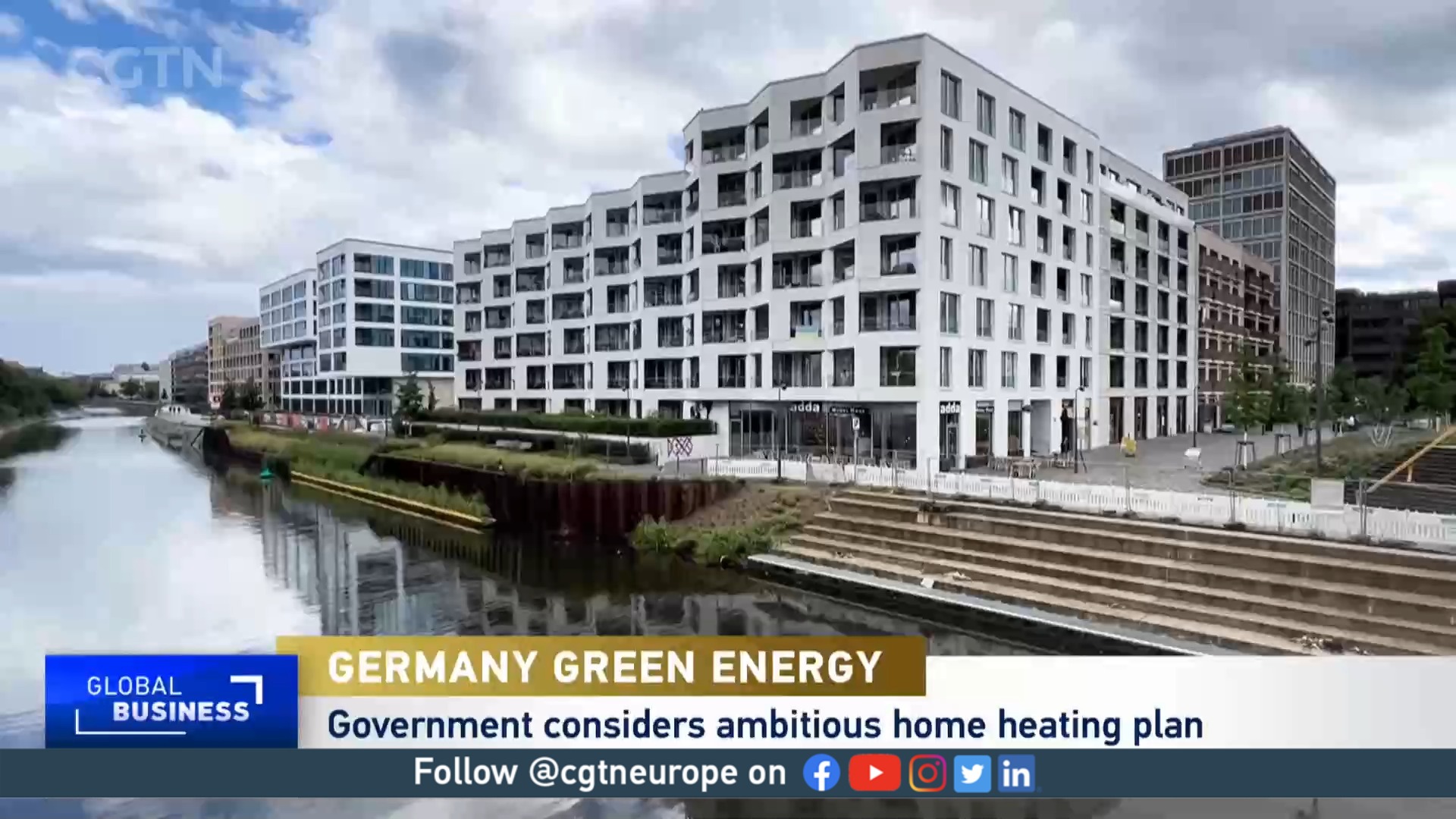03:09

A bid to see future houses built from 2024 using heat pumps instead of gas boilers is one of Germany's most ambitious green energy plans but the government will face a tough task in getting it agreed in parliament.
Changing the way homes are heated would be a massive shake-up in Germany where households have relied heavily on gas but the conflict in Ukraine and rising energy costs have brought momentum for change.
A new Buildings Energy Act would mean 65 percent of new homes' heating must come from renewables and the government aims to get it passed when parliament reconvenes after summer.
READ MORE
UK triathletes fall ill after river swim
EU'S Borrell to visit Beijing
Zelenskyy hails West's air defense systems
Solar and wind power are already heavily used to produce electricity in Germany and heat pumps are being touted as the future for keeping warm in the winter months. Put simply, they work like a reverse refrigerator, extracting warm air from the environment, which is then used to heat homes.
Thema is a heating company that installs these devices. Engineer Marco Mundt told CGTN they can't get them quickly enough to install in people's homes.
"Until two or three years ago, ordering a heat pump one day and installing it the next was no problem. But now we have delivery times of between 9 and 12 months. This makes planning extremely difficult and means customers who order a device today may not get it fitted till next year," he said.

Heat pumps are being put forward to replace gas boilers. /CGTN
Heat pumps are being put forward to replace gas boilers. /CGTN
Mundt also pointed out that a heat pump may save you money on your bills, but it isn't a cheap purchase. "Because of inflation, the cost of materials has risen significantly. Depending on the device, customers who want to switch to a heat pump system can expect installation costs of around $20-30,000," he said.
And that's not all - older homes need additional work to allow heat pumps to be installed - and in some cases, the total costs can run to over $100,000.
The plan is the cornerstone of the Green Party's energy transition led by Robert Habeck, the economy minister and vice chancellor. But as Jean Monnet Professor for European Studies at Stanford University in Berlin, Uli Brueckner, told CGTN, the big switch has been costly to the Green brand.
"I think a lot of people in Germany expected the reform to be something where you tick a box, and you get a green reform. And now they suddenly realize that it comes with a lot of uncertainties and it comes with personal costs," he said. "Those who are angry about the Green Party are even more angry. Their supporters who are not really 'green in their hearts' will move away. The reputation of the vice-chancellor, as the master of the green transition, has been massively damaged, and it will remain to be seen if he survives the next election."
And not all heat pumps can be used either - creating more problems. The government bill seeks to ban heat pumps that use certain types of refrigeration compounds - known as HFOs.
U.S. and EU manufacturers say doing that would violate the European Union's single market and see Berlin pursuing a 'Germany first' policy, facing potential reprimand in Brussels.
The Bundestag is currently on its summer break, but there's still plenty of activity in the economics ministry as the German government looks to find the right way to convince lawmakers that this huge change to the way Germans stay warm over winter is the right way for the whole country.

Subscribe to Storyboard: A weekly newsletter bringing you the best of CGTN every Friday
Cover image: New buildings in Germany may need to have heat pumps. /CGTN